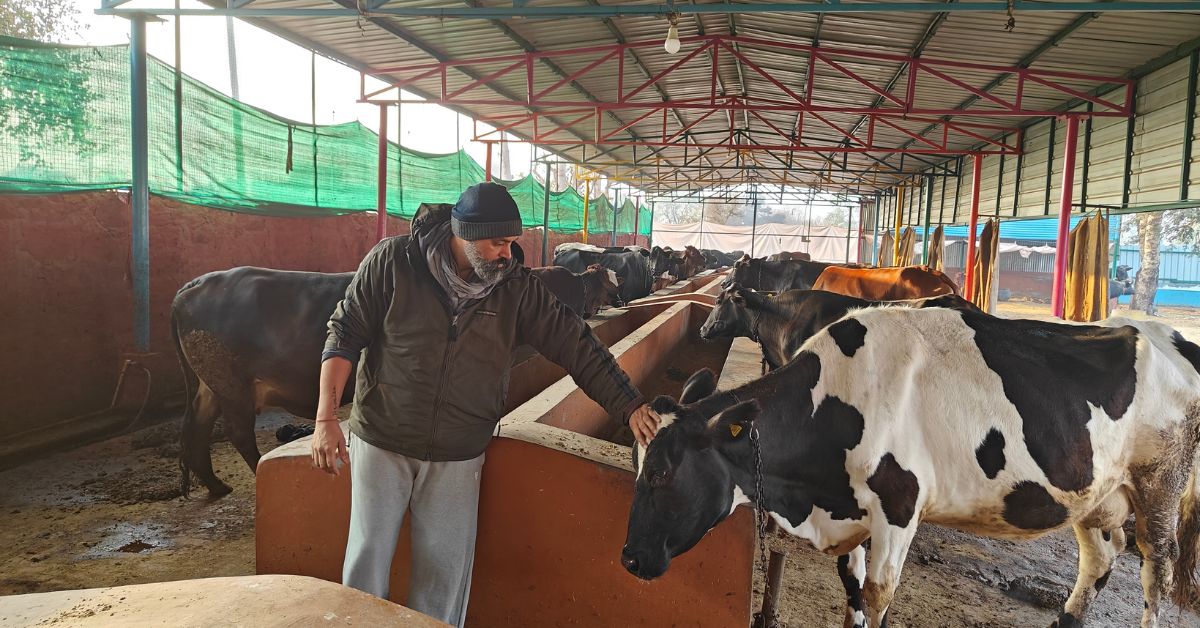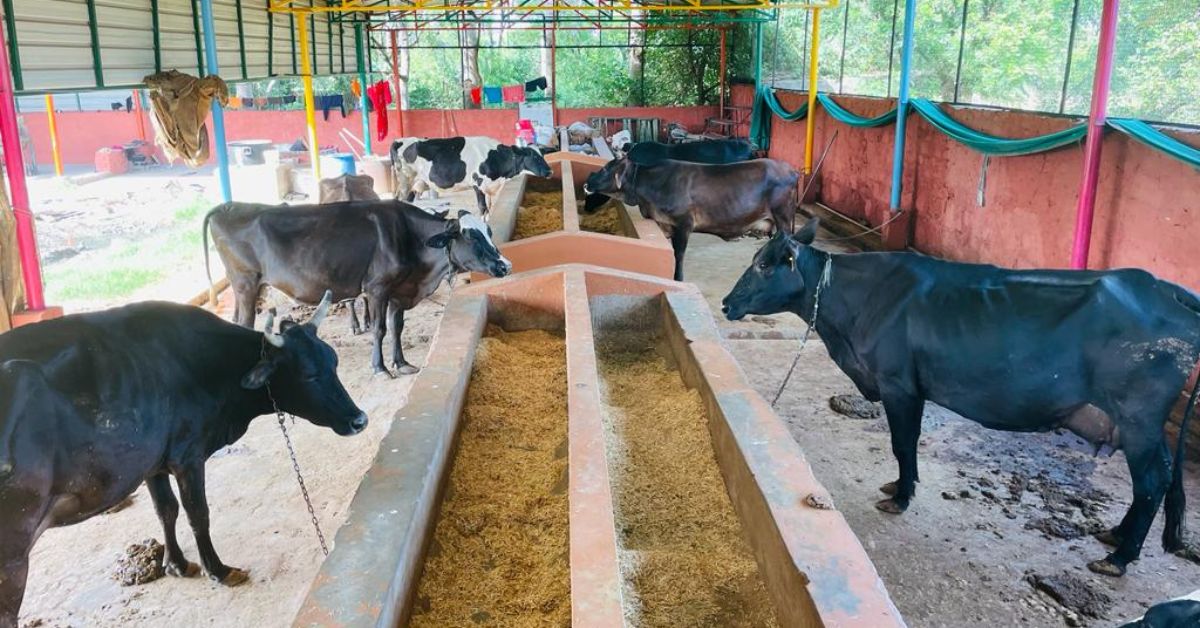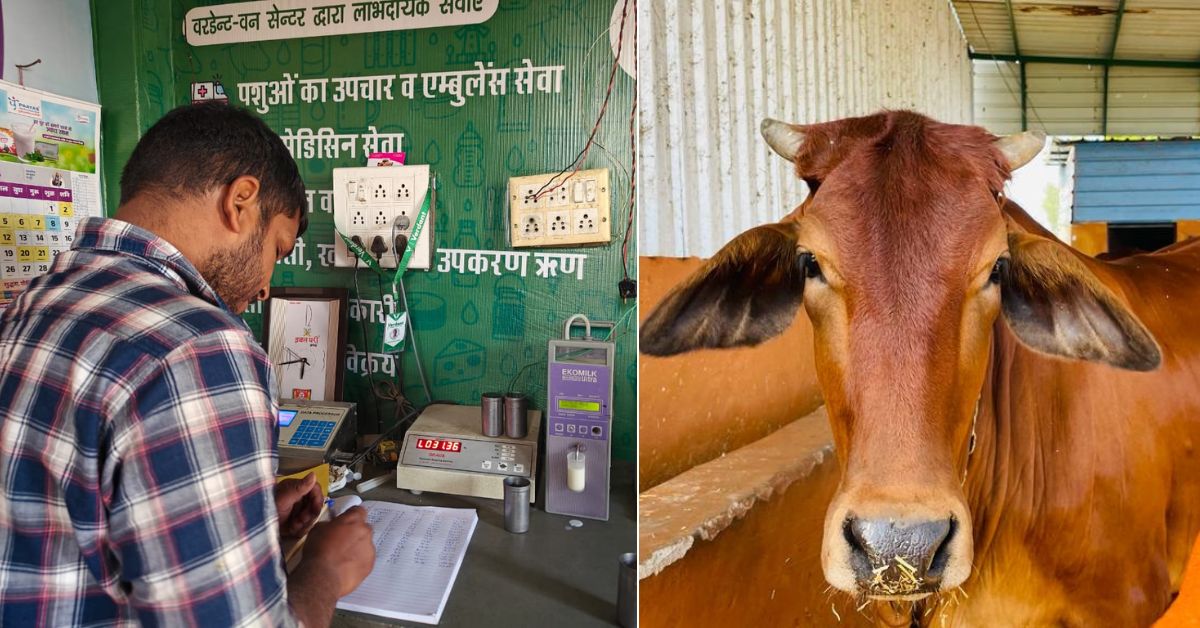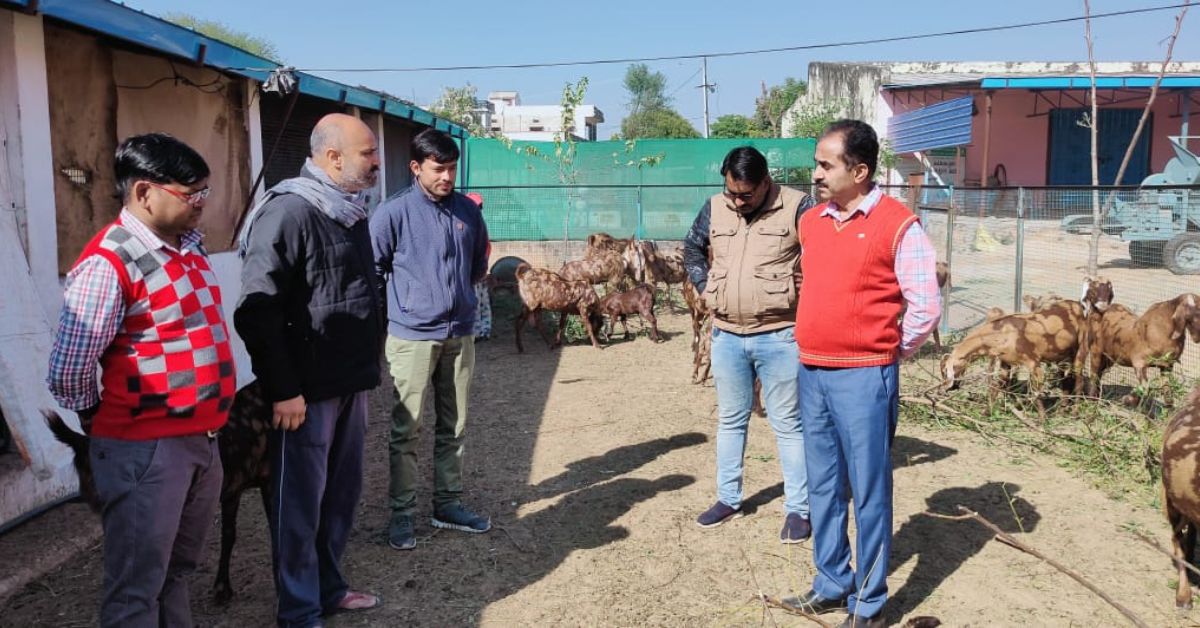The year was 2019. It was a pitch-dark night. Jaipur-based Manish Prahlad had retired to the bed after tending to his livestock. The next morning when he woke up, he found all of his nine buffaloes lying on the ground, breathing their last.
“I could not understand what caused the sudden discomfort in my buffaloes. They were short on breath. I saw them dying one by one,” he tells The Better India.
“I went to the local veterinarian to understand the cause of sudden deaths of my cattle but he had no convincing answer. He told me there were many farmers whose cattle were dying similarly. But the reason was unknown,” he adds.
Heartbroken Manish went haywire as these buffaloes were his only assets. “My nana (maternal grandfather) gave a Murrah buffalo to my parents as a wedding gift. Murrah is considered to be the world’s best dairy type buffalo and is one of the prestigious breeds, also known as ‘Black Gold’ for farmers,” he says.
“That buffalo was for our breed line and was not for commercial purposes. Usually, Murrah buffaloes have a market value of Rs 3 lakh, and its pure breeders are sold for a whopping Rs 35 to 40 lakh. They were our treasures. We could not claim insurance amounts as the cause of death was not known. This news broke me completely,” he laments.

Manish was very close to his buffaloes as it was through them that his mother was able to pay his school fees. “My mother was so upset. The health of livestock is extremely important for the income generation of farmers like us. So, it is not farmers who rear animals, it is these animals who take care of the farmers. I realised if I faced this issue living in Jaipur then there would be so many small farmers going through the same agony in remote areas,” he says.
“That day, I decided to work on improving medical facilities for livestock,” he adds.
With 536.76 million, India has the largest livestock population in the world. Livestock plays a key role and the sector contributes about 6.20 percent of the total GDP, and yet, Manish says, livestock healthcare remains ignored. “India has less than 12,500 veterinary clinics and owing to the system’s apathy, farmers continue losing their only assets,” he adds.
To address this, he launched ‘Verdant Impact’ in 2020 to offer holistic services — including telemedicine facilities, animal ICU, remote monitoring, cattle commerce, and virtual veterinary consultations for livestock care.
One-stop solution for cattle care
Originally from Banswara, Manish dropped out of his first year of PhD to focus on livestock healthcare. Talking about the issues in the field, he says, “Unlike cats and dogs, the biggest issue is that farmers cannot carry them to hospitals as transportation costs are high and the process is inconvenient.”

“Telemedicine allows farmers to connect to doctors anytime and anywhere. The purpose is to give doorstep facility, as a doctor visit costs up to Rs 500,” he adds.
The common concerns in livestock are diseases like foot and mouth, fever, digestive problems in monsoon, lumpy skin, and poor nutrition levels.
To find a convenient solution to address the diseases, Manish introduced a mobile application wherein farmers upload photos, videos, and detailed descriptions of their animals for consultation from a veterinarian, who later on shares prescriptions and remedies. If necessary, farmers are connected with nearby veterinarians for field visits.
“In that case, we provide an SOS button in our app wherein farmers can book consultations from nearby doctors, similar to Uber and Ola where nearby taxis are displayed to get quick responses. Our doctors serve till a range of 40 km and our response time is within an hour, which is very efficient considering rural terrain,” he adds.

Currently, Manish has set up more than 10,000 telemedicine centres and onboarded over 1,700 veterinarians and para veterinarians in 16 states — including Punjab, Rajasthan, Gujarat, Madhya Pradesh, Jharkhand, Bihar, Telangana, Arunachal Pradesh, Assam, Meghalaya, Manipur, Mizoram, Nagaland, Tripura, Maharashtra, and Haryana.
The startup conducts over 2,500 telemedical consultancy calls per day and charges Rs 90 for a consultation with the expert whereas Rs 150 for a field visit, which Manish says is more than double the market which charges Rs 300-500.
In addition to this, he has also designed Radio Frequency Identification (RFID) tags to monitor and trace the health, location, and movement of livestock. It also stores prescriptions and the disease history of the cattle.
As of now, Verdant Impact is associated with more than six lakh farmers. Of this, more than 1.7 lakh are directly benefitting through teleconsultations.
Talking about the impact of his work, Manish says, “Among the major health issues in livestock were productivity and difficulties in pregnancies owing to malnutrition. We provide herbal treatment that boosts suitable ovulation period in cattle.”

“For instance, bovines usually conceive in 37 to 40 months if it is malnourished but when you provide good nutrition, they are ready to conceive in 22 to 27 months. This gives farmers an extra cycle for gestation before the bovine is ready for the next calving. Depending on the breed, they earn an extra income of up to Rs 2 to 3 lakh annually,” he explains.
Furthermore, Manish points out that the startup’s main revenue is generated through cattle commerce, genetics care, and sales through health supplements. Currently, his annual revenue stands at Rs 8.72 crore.
“Our lives revolve around livestock and we have proved that we are not a charitable organisation. We are a viable profitable business. This achievement is too big for a PhD dropout and a farmer like me,” he says.
More than the profits, this work is extremely satisfying for Manish. “Today, doctors cannot get away with citing unknown reasons and have to mention satisfactory reasons in their postmortem reports so that farmers settle insurance claims. Meanwhile, we have been able to boost the incomes of farmer families by 40 percent. They are able to wed their daughters by selling good breed bovines. To be able to work for millions of voiceless animals and farmer families gives me immense fulfilment,” says Manish.
Sources:
Lumpy Skin Disease Emerging Threat to Livestock Industry: Published by ICAR -Agricultural Technology Application Research Institute (ATARI) in March 2023.
Edited by Pranita Bhat; All photos: Manish Prahlad.
No comments:
Post a Comment